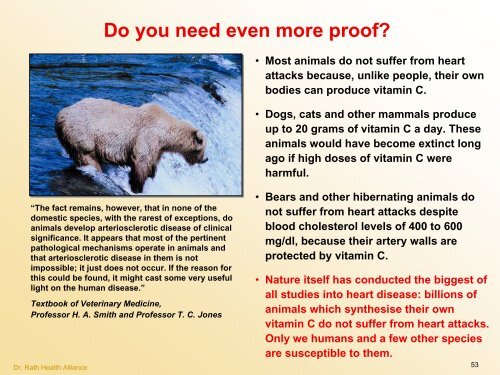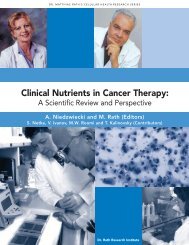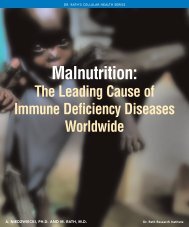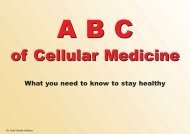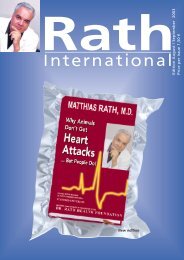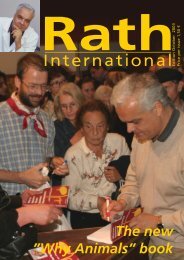Cellular Medicine Foundation Course Cellular Medicine
Cellular Medicine Foundation Course Cellular Medicine
Cellular Medicine Foundation Course Cellular Medicine
You also want an ePaper? Increase the reach of your titles
YUMPU automatically turns print PDFs into web optimized ePapers that Google loves.
Dr. Rath Health Alliance<br />
Do you need even more proof?<br />
“The fact remains, however, that in none of the<br />
domestic species, with the rarest of exceptions, do<br />
animals develop arteriosclerotic disease of clinical<br />
significance. It appears that most of the pertinent<br />
pathological mechanisms operate in animals and<br />
that arteriosclerotic disease in them is not<br />
impossible; it just does not occur. If the reason for<br />
this could be found, it might cast some very useful<br />
light on the human disease.”<br />
Textbook of Veterinary <strong>Medicine</strong>,<br />
Professor H. A. Smith and Professor T. C. Jones<br />
• Most animals do not suffer from heart<br />
attacks because, unlike people, their own<br />
bodies can produce vitamin C.<br />
• Dogs, cats and other mammals produce<br />
up to 20 grams of vitamin C a day. These<br />
animals would have become extinct long<br />
ago if high doses of vitamin C were<br />
harmful.<br />
• Bears and other hibernating animals do<br />
not suffer from heart attacks despite<br />
blood cholesterol levels of 400 to 600<br />
mg/dl, because their artery walls are<br />
protected by vitamin C.<br />
• Nature itself has conducted the biggest of<br />
all studies into heart disease: billions of<br />
animals which synthesise their own<br />
vitamin C do not suffer from heart attacks.<br />
Only we humans and a few other species<br />
are susceptible to them.<br />
53


